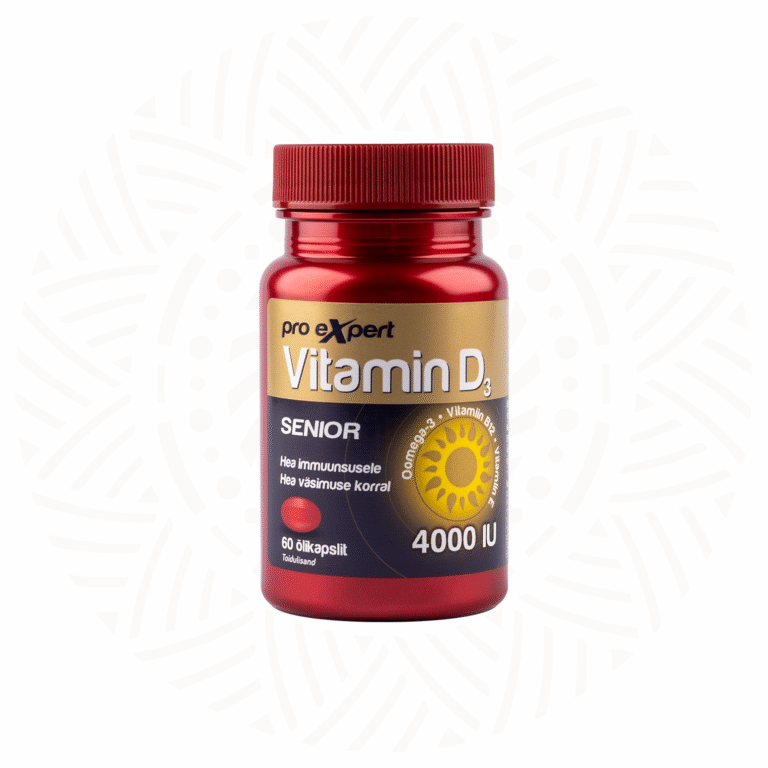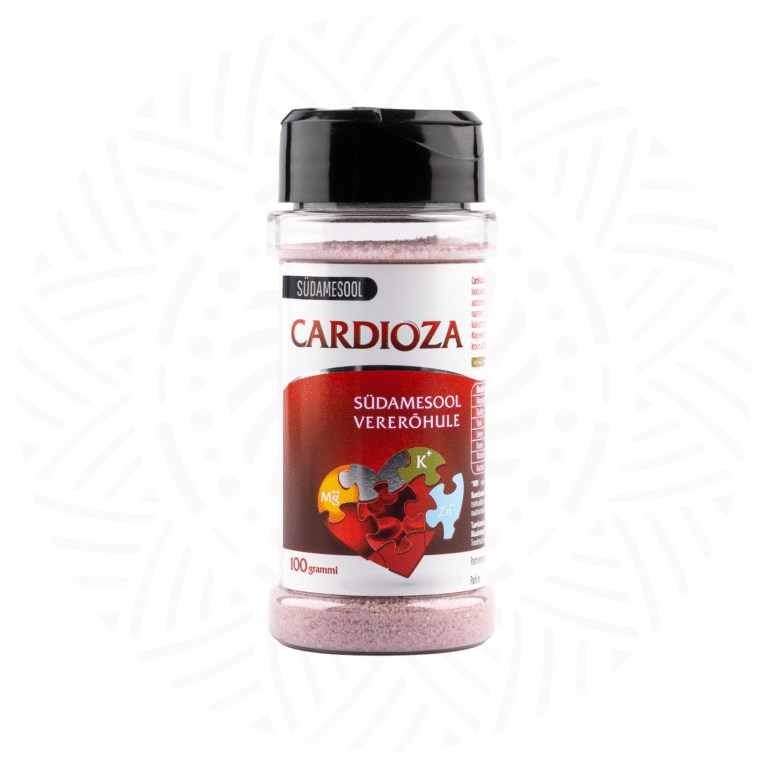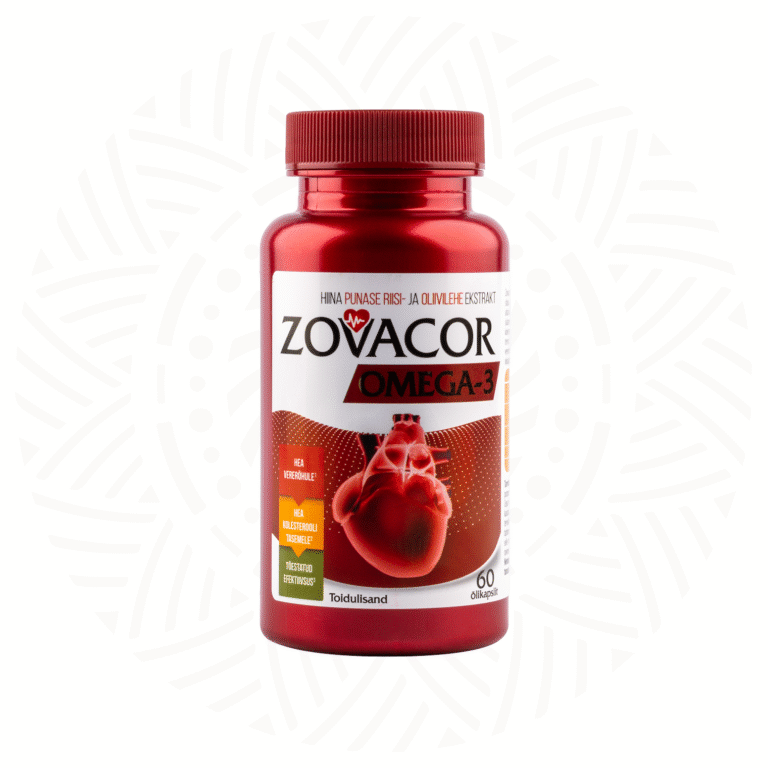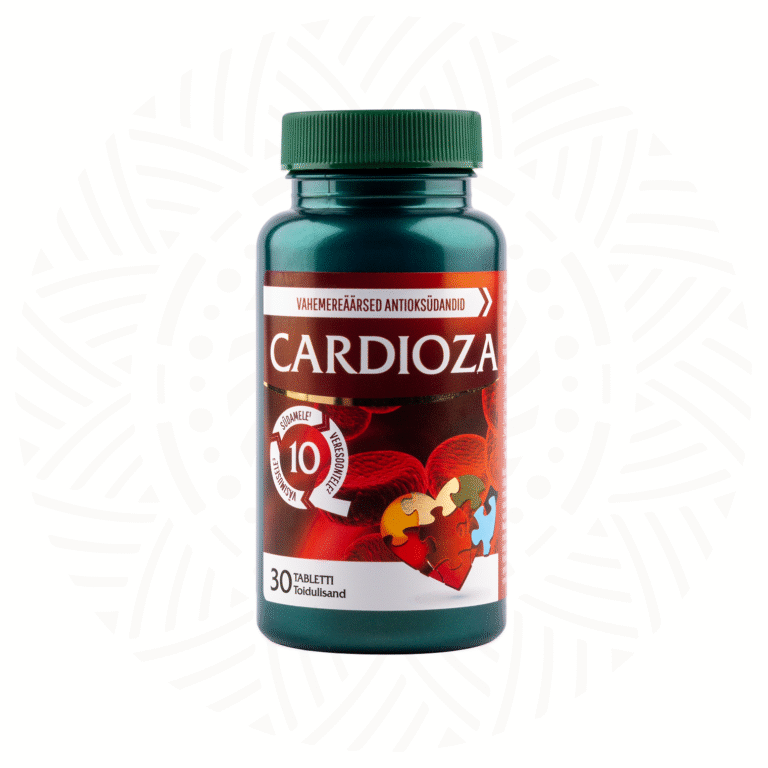1. Taking care of heart health requires at least 30 minutes of aerobic exercise per day.
Physical activity and the resulting physical fitness have been proven to reduce morbidity and mortality from circulatory diseases, primarily coronary heart disease, arterial hypertension, and stroke. Our entire body requires movement and moderate training for normal functioning. During exercise, we train muscles, including the heart muscle.
2. Reduce salt intake. Reducing daily salt consumption lowers blood pressure and decreases the risk of cardiovascular diseases in people with both normal and high blood pressure. The recommended daily salt intake is 3-5g. Today, the average Estonian consumes …. grams of salt. You can reduce salt intake primarily by decreasing the proportion of processed foods in your diet, using more herbs, and replacing regular table salt with heart-friendly salt that has lower sodium content.
3. Increase potassium intake.
Potassium is needed by our body for nerve impulse transmission, acid-base balance regulation, and normal muscle function, including the proper functioning of the heart muscle. Potassium deficiency promotes the development of arrhythmias. Long-term excessive table salt consumption contributes to potassium deficiency. Good sources of potassium in the diet include bananas, raisins, grapes, carrots, radishes, and celery.
4. Limit alcohol consumption. Alcohol promotes heart arrhythmias and increases the risk of blood clots. Alcohol consumption has long been considered an integral part of our culture. Rarely do you find a festive table without alcohol. Likewise, the habit of having a few drinks after a hard day at work or using alcohol for relaxation at the end of the workweek is wrongly accepted. Alcohol is not a suitable means of relieving stress. For those with heart problems, any amount of alcohol places additional strain on the heart. For a healthy person, daily alcohol consumption should be limited to a single glass of high-quality red wine with food, and even then, primarily for the beneficial antioxidants it contains, not for the alcohol content.
5. Consume more fruits and vegetables. Increasing the proportion of plant-based foods in your diet reduces the risk of elevated cholesterol. According to Estonia’s heart disease prevention guidelines, each person should consume at least 500g of fruits and vegetables daily. Eating this amount of fruits and vegetables ensures the body receives a large portion of the necessary vitamins, minerals, fiber, and heart-beneficial antioxidants.
6. Quit smoking. Nicotine combined with tobacco damages blood vessels, raises heart rate, and increases blood pressure. Smoking is a significant factor that harms heart health. In addition to affecting the heart, smoking directly impacts the body’s oxygen supply by reducing lung capacity and function, impairing our nervous system and concentration. Quitting this harmful habit is an invaluable gift to your health.
7. Reduce saturated fats.
Saturated fatty acids raise cholesterol levels. There are arguments both for and against saturated fatty acids. It is important to understand that these are not fats you should avoid at all costs. Our bodies need them for absorbing fat-soluble vitamins, protecting internal organs, hormonal regulation, etc. Unfortunately, many people’s diets, especially during the winter, are dominated by foods rich in saturated fats: fatty meat (bacon), minced meat, eggs, cheese, milk, and cream.
8. Maintain a healthy weight. Obesity leads to high blood pressure, a significantly increased risk of diabetes, and joint diseases, which in turn hinder movement and contribute to further weight gain and related problems. Reducing body weight to a normal range is one of the most important steps in preventing heart disease. The normal weight formula is: for men: height minus 100, and for women: height minus 110. By reducing weight, we lessen the strain on bones, joints, and the heart.
9. Increase polyunsaturated fats (Omega-3). Polyunsaturated fatty acids reduce bad cholesterol levels in the blood. The most well-known polyunsaturated fatty acid is omega-3. The human body cannot produce it on its own, so we must obtain it from food. Good sources of omega-3 include fish oil, flaxseed oil, rapeseed oil, soybeans, walnuts, and marine fish and other seafood.








